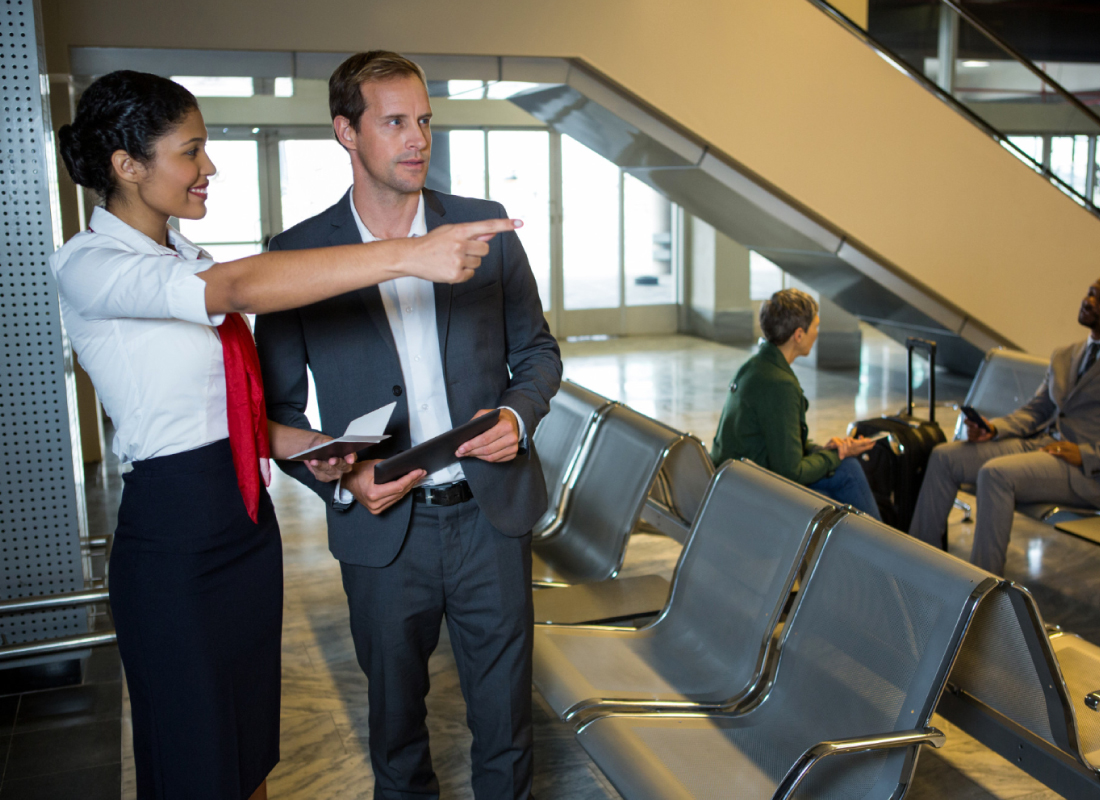Pre-Departure Guidance
A Pre-Departure Guide for International Students
Pre-Departure-Overview
Attending orientation on campus after you reach is mandatory, but at KNOWLEDGE REACH we treat pre-departure formalities as advance preparation for your new life in your host country.
At KNOWLEDGE REACH, we ensure that our students are well informed about the do’s and don’ts while preparing to live and study in a foreign country. The major components include program registration, course orientation, visa status and details, money matters, health considerations, and necessary documentation required for getting IDs in the foreign land.

Students must also keep in mind the lifestyle adjustment that is awaiting them. While students are engulfed in the technical aspects of travelling abroad, such as booking the flight, packing essential stuff, inspecting coursework materials, etc., through this blog KNOWLEDGE REACH aims to equip students with quintessential instructions that will enable them to have a stress-free pre-departure period.
Pre-Departure-Health Considerations
It often feels like France is too expensive a country to live in, which is true to some extent, but much cheaper than the UK or the US. On average, France is a viable option. France attracts many international students due to its excellent job opportunities, recognized education system and popular tourist destination.
It is home to a beautiful city with some of the best universities in the world specializing in business, engineering, tourism, design, pure science and the arts. It has an excellent academic reputation, not to mention great culture, music, cuisine and art.
Meet with your physicians
Students should visit a doctor and check their health prior to travel. This is the main requirement. Especially for people with pre-existing chronic conditions. Your doctor will suggest a plan for managing your condition while you study abroad.
Many universities and visas require a medical/physical/travel health certificate confirming international travel and academic readiness. Requirements may vary slightly from country to country. So, before visiting your doctor and getting a certificate, carefully read the visa conditions of your university and country. A complete blood count is usually recommended, but some visas may also require x-rays and urine tests.
For prescription drugs, double check what medications you need, what you need to bring, and whether they are allowed on board.
Health Insurance:
Many colleges and universities can offer incoming students a choice of health insurance for the duration of their enrollment. In most cases, students can opt for health insurance provided by the university. Health insurance costs about $1,000 per year. You may be referred to other health insurance providers depending on your pre-existing medical condition and other qualifications.
When choosing a good health insurance plan to cover your expenses in another country, you should consider any health conditions covered by the insurance that best suits your situation. Insurance must cover the duration of your study abroad, otherwise health care can be very expensive abroad, especially in the United States. Many insurance companies have specially designed insurance packages/plans that meet various program specifications. You should choose an insurance plan that provides adequate coverage and adequate coverage for medical expenses and medical emergencies you may incur.
Transportation:
The kind of transportation preferred by international students largely depends on your place of residence (in-campus or off-campus), and whether your university is located in a big city with good train/bus systems or semi-urban university towns.
Public Transportation
Trains/ Tubes/ Subway/ Metrorail systems: Major cities in the US, UK, Canada, Germany, Australia, etc., are home to well developed and vastly connected railway systems. Cities like New York, Chicago, Boston, are known for their subway systems. Hence students attending universities in such locations can readily rely on them for daily commute. Generally, student discounts will be offered on the ticket fare. Students can pick and choose monthly, weekly ticket plans as per their convenience.
Buses/Shuttles: Like the subway systems, well developed public bus networks are available in major cities around the world like New York, Chicago, London, Frankfurt, Sydney, Brisbane, etc. Students must produce their university ID cards and avail discounts on ticket fares, seasonal fares will be more economical than daily tickets. Generally, universities do provide information on public transport options available, but students are encouraged to check concerned city/town transportation websites for more accurate information.
Private Transportation:
Bicycles:
Surprisingly many students who stay within large campuses or very close to the university prefer to use a bicycle, not only are they economical, eco-friendly and cost effective, they are very simple to use and do not mandate a license. At the same time, cyclists must wear appropriate safety helmets and obey all traffic rules. Also, don’t forget to lock your bike when you put it on the bike rack.
Scooter/Bike:
Students who have ridden a scooter/bike in their home country may find this option convenient. Although driving requires a license. Scooters/bikes are ideal for short trips within the city and for short day trips between university and dormitory. As an international student, you need to keep an eye on your fuel and maintenance costs.
Private vehicle:
Mature students with automotive experience will find this option easy. Also, foreign students can take a driving school and get a license. This mode of transport is very convenient for overcoming long distances. When using a car, the cost will also be correspondingly higher. So, if your student budget can afford a 4-wheeler, you have a choice. You may also need to consider insurance costs incurred when renting/leasing or buying a car.
Private Taxi:
This is an expensive mode of transport and not recommended for everyday commuting. Taxis are useful if you are traveling to a new place and need directions. New ride-sharing apps like Uber are also available for these vehicles. Car Pooling:
A very economical option for international students. If you have the means to own a car and can find people/colleagues who prefer the same itinerary, carpooling can be a reasonable option. Students are expected to be familiar with their accompanying passengers and comply with all traffic and safety regulations.
Pre-Departure- Money matters
This is an necessary element for all global students, one that many of them want to draw close carefully. While dwelling and reading in a new country away from household can be interesting and overwhelming, monetary concerns and fundamental information on cash administration is a must.
Currency:
This is the most simple expertise that each and every student need to have. The US (USD), UK (Pounds), German (Euro), Australian (AUD), Canadian (CAD), have one-of-a-kind currencies with various change rates. Be positive to equip yourself with the fundamentals of the worried country’s foreign money denominations in phrases of cash and notes.
Bank Accounts & Debit/Credit Cards:
Only if you have a financial institution account with any financial institution can you have a debit/credit card from them. If your domestic financial institution has a department in your host nation, then you can observe for an worldwide debit/credit card in increase and use that.
All banks, in the host nations, will provide concessional prices for opening financial institution bills and presenting debit/credit playing cards to global students. Moreover, universities would possibly no longer suggest any banks, however will furnish data on the picks available. Remember whilst the usage of worldwide debit/credit cards, foreign money conversion charges will apply. International college students overseas will additionally want to supply legitimate IDs whilst making use of for a financial institution account and allied debit cards.
Students will be prompted to open a checking account with a bank. Checking money owed are one in which you are no longer going to be depositing large sums of money, however will be the use of the stated account for everyday charge of utility bills, dwelling costs, each day expenses, writing a check, on line wire transfers, etc. A debit card can be issued towards the checking account. Savings debts are regarded for conditions whereby you want to shop giant sums of cash that you are no longer going to be getting access to frequently. Opening a financial savings account and keeping a healthful savings will make it simpler to get savings playing cards from a bank. Though there are many banks that grant savings playing cards to global college students with no deposit history.
Showing normal cash deposited in a financial savings account, whilst showing utilities/expenses being paid through the checking account, suggests a stable economic scenario and builds your savings history.
Pre- Departure ID’s
Passport:
Keep more than one copies of your passport in greater than one baggage and make certain your parents/guardian have a copy of your passport with them lower back home. Ensure the authentic is with you and is safely tucked away.
Admissions Letter/Admissions Card:
Once you are provided a place in the program of your choice, the university will provide a letter of acceptance/online admissions card/I-20/CAS and many others that can be used as proof to practice for visa, enter the campus, exhibit at immigration/airports, etc. Ensure you have a couple of copies of the same.
Visa Proof:
Student visa important points are most probably going to be affixed to your passport. Some allied visa forms would possibly be current that you would possibly want to raise separately. Double test that you raise all visa associated small print with you whilst you travel.
Pre-Departure- Culture Shock & International Students
Culture Shock is something that most global students, even travelers when they go to an surroundings that is unfamiliar to them. This motives the college students to sense anxious and overwhelmed on seeing the one-of-a-kind social practices/ new people/ diverse environments/ distinct fee structures they want to get accustomed to. In most instances this feeling tends to subside with time, although some college students may locate it tougher to overcome this section and may fall into loneliness and depression.
Most universities grant data on tradition shock and have assets and campus counseling facilities that can assist college students conflict this issue.
Simple Tips to overcome the Culture Shock
- Eating a healthy balanced diet, exercising regularly, going outside for walks, or using the campus gym, can make a huge difference to your mental make-up.
- Universities also encourage international students to join home country associations, where you can meet other students from your nations, who speak the same language and might have similar culinary tastes. Students can also meet other international peers from different nationalities and bond over the common experiences of arriving at a new country, intellectual interests, and social activities.
- Find a restaurant/store that supplies products from your home country. Eating a simple dish/comfort food from your culture will make you feel better and more at home.
- Regularly contact your folks/friends back home. If you have relatives in the new country, make sure to meet them. Setting aside a few minutes in a day to chat with a trusted family member/individual can make a world of difference to your mental frame of mind.
- Make use of all the opportunities that your university has to offer. This can be orientation programs, social meet & greets, recreational activities, social service initiatives, etc.
Pre-Departure- Important Documents Checklist
Particulars:
- Original Passport and photocopies of your passport
- Visa documents, allied travel documents (like the I-20 form that students travelling to the US need to carry; residence permits).
- Air Tickets, travel insurance documents
- University acceptance letter, admissions card, proof of admission to the concerned program.
- Proof of scholarship document, financial documents, loan statement.
- Necessary medical documents, certificates, prescriptions, health insurance documents.
- Original Transcripts/ attested marksheets
- Prior degree certificate/ or supplemental degree certificate
- Resume, Sop, LoRs
- GRE/ GMAT/ TOEFL/ IELTS
- Previous work experience documents, proof of employment, recommendation from employers/ supervisors.



